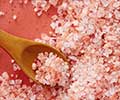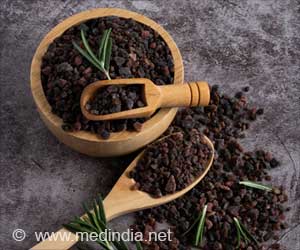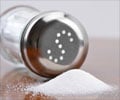- Some clever ways to reduce salt while shopping - Boston Globe
Is Salt Good or Bad?
Salt is needed by our body to function smoothly but excess intake can increase the risk of heart diseases and stroke. A large proportion of nearly 40 percent of our dietary salt comes from the food we take every day.
Food items such as pizza, bread, cheese, chicken soup, meat dishes, pasta and snacks like potato chips, butter popcorns, etc., are responsible for increasing salt intake in our diet.

Why Is Too Much Salt Bad for You?
- Overconsumption of salt is closely linked to a number of detrimental health outcomes, such as kidney failure, cardiovascular disease, stroke, and hypertension.
- Excessive sodium consumption upsets the body's delicate electrolyte balance, which has a negative impact on blood pressure control.
- The heart and arteries are overworked by high salt levels, which raises the risk of potentially fatal cardiovascular events including heart attacks and strokes.
Smart Ways to Cut your Salt Consumption:
Here are listed some valuable ways to lower your salt intake in daily diet.
I. Evaluate the nutrition value of food:
In order to avoid consuming too much salt, it is imperative for you to assess nutrition levels of different brands of your favorite food articles. Use fresh food instead of packaged or canned food.
II. Read the label:
Another important tip to help you limit your salt consumption is to study the labels on food items.
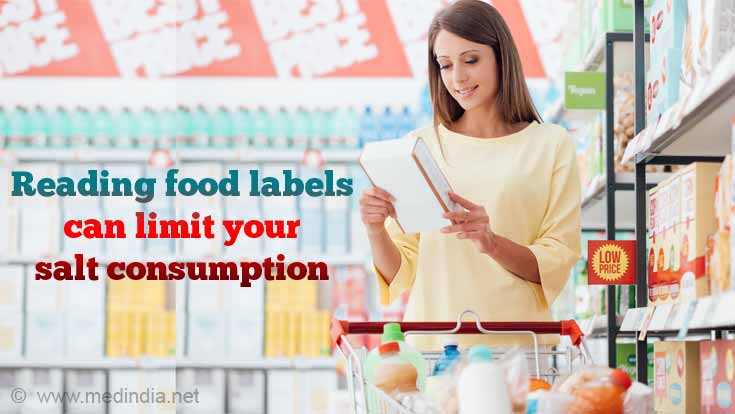
Sodium is present in practically everything we eat. But the amount of sodium in condiments is really surprising and shocking at the same time.
III. Take care of sodium containing compounds:
While reading the list of ingredients in food items you should also look for sodium containing compounds such as monosodium glutamate (MSG) and sodium nitrate.
One tablespoon of soy sauce contains around 920 mg of sodium; half cup of tomato sauce contains 640 mg of sodium while a tablespoon of barbeque sauce has 210 mg of sodium. So if you use any of these, make sure to balance the rest of the day’s food with low sodium choices.
When companies offer you low-fat food items they simply replace fat with high quantities of salt to enhance the taste and flavor of the food.
IV. Use flavoring spices:
Use other flavoring spices instead of adding salt in your dish. You can sprinkle dried or fresh herbs or spices such as basil, pepper, cumin, rosemary, ginger, cinnamon or garlic.
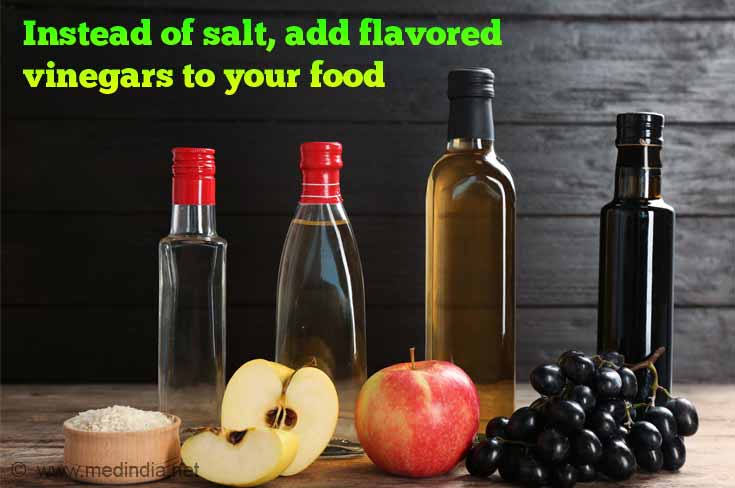
Add flavored spoonfuls of vinegars like cranberry, fig and pear in your food instead of salt. If you are buying food items always look for "no or low-sodium" labels on them.
V. Check eating out:
Another important point to keep in mind is to avoid frequent eating outside. You should choose eating at food hubs where food is cooked instead of at places where food is served pre-packaged.
While ordering potatoes, always order baked potatoes instead of mashed ones.
Avoid the skin of potato as even during baking, potato skin absorbs salt and oil.
Eat green fresh salads and avoid dressings as they are rich in sodium content.
VI. Be careful about the size of the portions:
You should be very particular about the size of your servings. Always check the ingredients of your servings. An average pack of chips contains 170mg of sodium. So if you eat a pack you increase your salt intake.
It is entirely up to you to adopt salt restricted food habits. It is you who have to initiate a low-sodium diet in order to cut on your daily salt consumption. Incorporate a healthy habit and keep your heart protected.
Scientists are of the notion that daily requirement of sodium intake is 2300mg for young adults and for people over 50 years the daily requirement of sodium is 1550 mg.
The sure shot way to harness salt intake in the daily diet is to eat wisely and carefully. So, be particular about what you eat.

